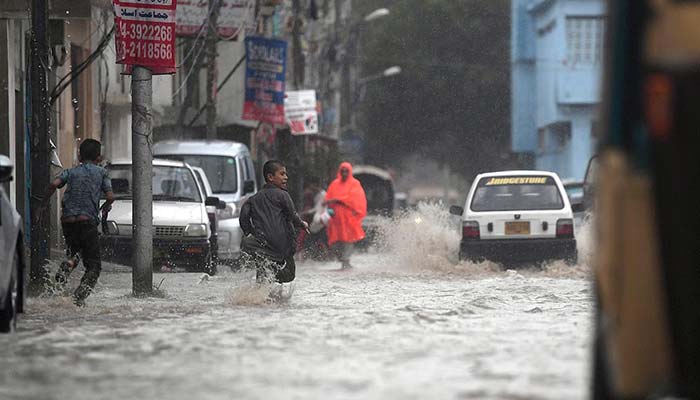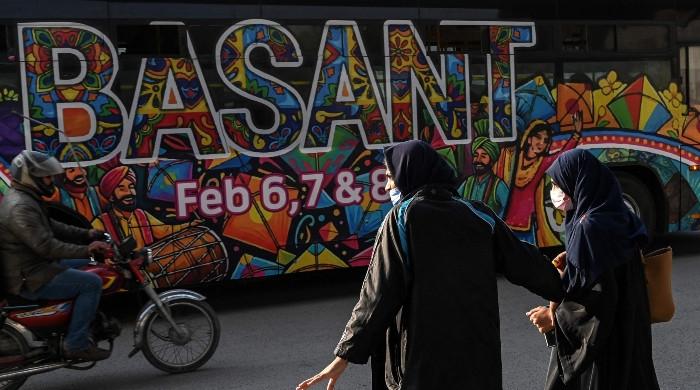Saving lives: Pakistan needs a holistic plan to deal with electric shocks during rains
A NEPRA report says there were 814 deaths in Pakistan in last five years due to electrocution
July 23, 2021

Pick up any local daily, there will be at least a few news reports of deaths from electrocution.
During the monsoon season, the number of such cases goes up, since the power infrastructure and faulty indoor electrical systems are uncloaked, leading to the loss of lives.
It is upsetting that while electrocution is a rarity in developed nations, developing countries like Pakistan are still grappling with keeping their citizens safe.
In spite of this, Pakistan has yet to come up with a holistic plan to deal with electrocutions. According to the State of Industry Report 2019 – 2020 by National Electric Power Regulatory Authority (NEPRA) there were 814 deaths in Pakistan in the last five years due to electrocution.
These lives were lost because of faulty wiring, defective distribution systems, broken down wires, rickety infrastructure, impaired drainage systems and generally due to the public’s reckless attitude towards managing electricity.
But NEPRA’s study, though extensive, does not shed light on the way forward and does not recommend any policy changes or measures that could be applied on a macro level. It also lacks insights on substantial measures taken by NEPRA and by Distribution Companies (DISCOS) to curb these issues.
However, to manage and prevent such occurrences, NEPRA conducts regular probes and reviews the license of power distribution companies. If a company is found at fault, NEPRA imposes a penalty.
Though, what slows down the process is when distribution companies obtain stay orders against the penalty and the same exercise is virtually repeated every year.
In order to address such problems, countries such as Canada and India have either made separate electrical safety authorities or developed specialized divisions, under existing power regulatory authorities, that spearheads the prevention of electrical shocks and electrocution.
These authorities are also in charge of educating the masses about electrical safety guidelines, conducting inquiries, inspecting electrical installments, ensuring all personnel at electrical companies and electricians performing indoor jobs are well trained and have permits. Thus, these authorities are able to dig deeper into core issues and create short- and long-term action plans.
There is a void of such an authority in Pakistan that concentrates all its efforts on this one cause.
Meanwhile, the electrical safety forum in India has also proposed to explore 110/120 volt as an adoptable option in place of the present 220/240 volt to reduce fatalities.
Furthermore, in many developed countries live wires are laid underground instead of overhead.
In Pakistan, the lack of regulation of the Internet and cable operators also compounds the issue. The haphazard way in which the cable wires are spread, without any concern of safety, interferes with the electrical wiring, especially during torrential rains and storms.
Cable operators should be made to follow protocols and not allowed to spread out cable wires as per their whim.
Another major contributing factor is the installation of kundas at residences and commercial outlets. Along with creating an understanding among the masses about its hazards, sterner action is required from authorities to curb its usage.
In this regard, the media also needs to play a more proactive role in spreading electrical safety guidelines and preventions, to keep in check our cavalier attitude towards electrical safety. For instance, it’s a common sight in Karachi to see cobblers and other skilled laborers putting up makeshift cabins under high-tension wires. Local body governments should provide these workers a safe place, where they can operate their small businesses and not be forced to endanger their lives.
Additionally, school curriculums should emphasize on educating children on how to use electrical items safely at home and precautionary measures to be taken during rain.
The UNICEF is conducting nationwide awareness sessions to train children on how to cope during natural disasters and other risks, including electrocution. More initiatives like these are needed to bolster these efforts and bring about positive change.
The development of a national strategy to curb electrocution is the first step, which will improve synchronization amongst all concerned stakeholders to ensure the safety of citizens.
Siddiqi is a communication professional with experience in the power, telecom, financial services, manufacturing, and utility sectors. He tweets @mkhayyams











